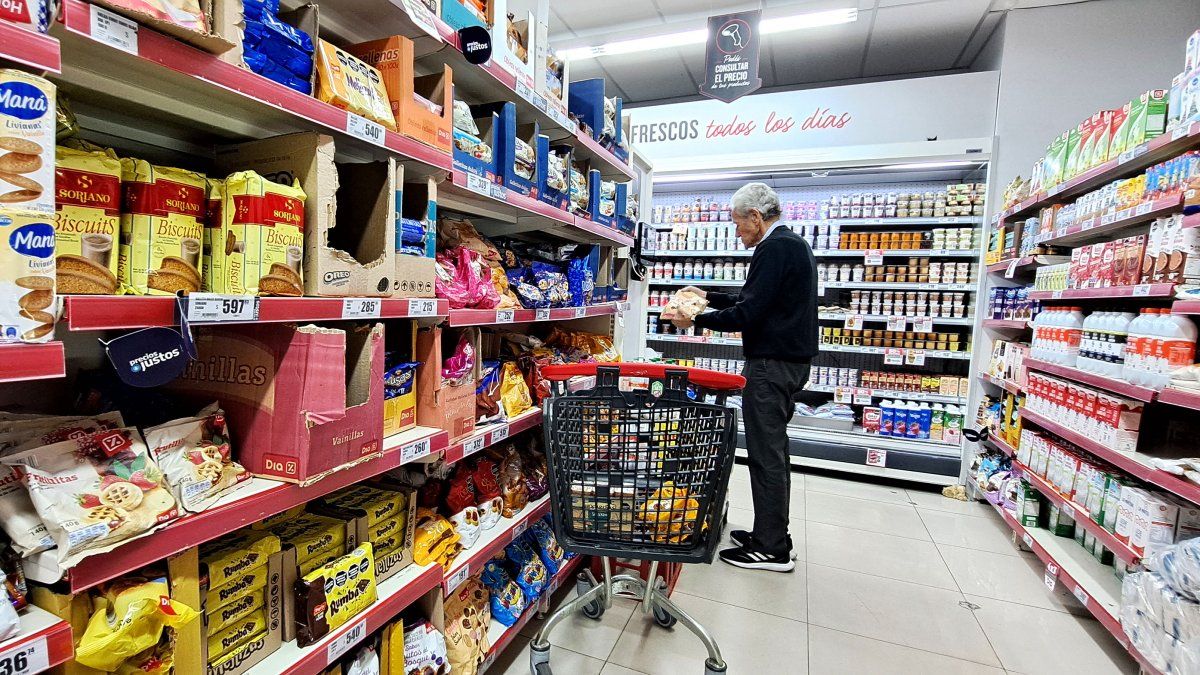It is that, according to polls by consultants, food continued to grow strongly this month: a figure that, in addition to boosting the CPI, has a full impact on the lower-income sectors.
According to the survey of food prices carried out by the LCG consultancy, the third week of April “closed with a 2% weekly price increase, slowing down almost 1 pp compared to the previous week.” “So far this month, it has accumulated a total increase of 7.6%, values that have never been reached after three weeks. Average monthly inflation accelerated again, standing at 6.8% (9.4% end to end)”, they explained from the firm.
Within the basket, in the last four weeks the increase in vegetableswho climbed 14.8%while the “baking products, cereals and pasta” rose 8.5% and meat, 7.7%. “After two consecutive weeks of high incidence of products with increases, the percentage of products with increases was below the average of the last four weeks, with 26% of the total basket. The monthly average of products with increases is currently 29%. This means that the total basket adjusts in less than a month on average”, it was indicated.
Inflation projections and analysis
For its part, as analyzed by Fundación Capital, it is estimated that the CPI “will continue to be around 7% per month”. “Beyond the factors that affected the CPI for March due to seasonal reasons, the certain thing is that the pressure on the prices is more and more generalized”, detailed.
When analyzing the evolution of food prices in recent months, Fundación Capital pointed out that “Since February, a clear acceleration has been observed, going from average monthly increases of 4.8% between November and January, to 9.9% monthly in the February-March two-month period, in Greater Buenos Aires”. “It is worth mentioning that this does not respond exclusively to the price of meat, which exhibited an average monthly jump of 16.1% in the two-month period. Indeed, only oils, fats and butter increased by 4%, while sugars and sweets and bread and cereals showed increases of 6.5% on average per month (vs. 4.5% and 5.5%, respectively in the previous period) and milk, dairy products and eggs of 8.5% (vs, 4.9%)”, they detailed.
Meanwhile, according to the CPI GBA prepared by Ecolatina, andn the first half of April there was an increase of 7.3% compared to the first half of March“confirming that the inflationary dynamics would be consolidating a higher floor after the acceleration evidenced during the first quarter, even though it is a month with fewer specific increases like those seen in March.”
“It is still worrying that the registration for the month is once again driven by the Food and beverages category (+9.5%), within which the advances of Poultry Meat and Eggs (both climbing +29%), Fruits (+16%), Rice (+11%) and Vegetables (+14%) stand out”, they detailed from the firm.
“The first quarter left a higher floor for the rest of the year, once again unanchoring inflationary expectations. Going forward, we will continue to see high and persistent inflation, fueled by strong inertia, increasing indexation and shortening of contract terms, together with the uncertainty of the electoral transition and the lack of anchors: new increases in public service rates , a crawling peg that will not be able to slow down and parities that will exert pressure in the election year”, they detailed from Ecolatina, and added: “To this will be added the effect of import restrictions on the availability of goods and the impact of ‘ agricultural dollar’ on certain goods in the food basket. Within this framework, the ‘Fair Prices’ program will have little influence on the inflationary process”.
For their part, the Libertad y Progreso Foundation pointed out that consumer prices registered a rise of 5.3% in the first two weeks of April, showing a slowdown compared to the accumulated rate observed in the first two weeks of March (6 ,4%). “According to our projections for the coming weeks, inflation for April would stand at 6.1%,” they explained from the firm days ago.
Source: Ambito




